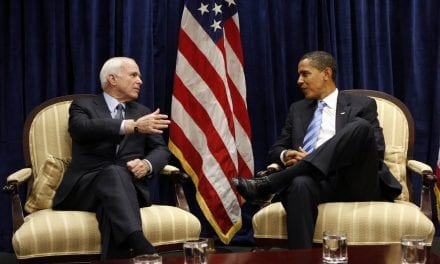by James G Neuger, Eleni Chrepa & Ian Wishart, Bloomberg
Greek Prime Minister Alexis Tsipras’s anti-austerity government heads for another confrontation with an increasingly testy German-led bloc of creditors as warnings of an accidental default loom over his debt-swamped nation.
Greece needs at least a symbolic show of progress at Monday’s meeting of euro-area finance ministers in Brussels to persuade the European Central Bank to keep emergency funds flowing to Greek banks at the current pace. The next hurdle comes just one day later, when Greece has to pay about 750 million euros ($837 million) to the International Monetary Fund.
“We remain of the view a deal will be done,” Mujtaba Rahman, an analyst at Eurasia Group, said in a note to clients. “But given the incredibly tight timeframe, an accident remains entirely possible.”
Greek stocks and bonds fell, with the benchmark Athens Stock Exchange dropping 3.1 percent at 12:30 p.m local. Yields on two year notes rose 10 basis points to 20.85 percent.
Tsipras met with top cabinet ministers for several hours on Sunday to brief them on the negotiations. Athens expects the Eurogroup to officially acknowledge important progress, a Greek government official, speaking on condition of anonymity as the talks were private, said after the meeting. Tsipras and his ministers confirmed the need for a mutually beneficial deal within the framework of the government’s mandate, the official said.
Mounting Pressure
“The Greek government has to do what it has to do, what it’s supposed to do, when it’s a member of a club,” Spanish Foreign Minister Jose Manuel Garcia-Margallo said Monday.
The cabinet meeting in Athens took place under mounting pressure to abandon election promises made just months ago for more generous retirement benefits and to recommit to selling government-held stakes in companies to raise cash. No one outside of Athens knows for sure how long the country can stay afloat.
“Experience elsewhere in the world has shown that a country can suddenly become unable to pay its bills,” German Finance Minister Wolfgang Schaeuble said in an interview with Frankfurter Allgemeine Sonntagszeitung. Schaeuble said if Greece is forced out of the euro “it won’t be because of us.”
Tsipras’s determination to junk the budget cuts associated with Greece’s 240 billion-euro bailout — and to tap creditors for more money after that — has hammered Greek markets since he took power, amid uncertainty over the country’s solvency and place in the euro area. Failure to reach a deal in the coming weeks could lead to a default that might put the country on a “slippery slope toward Grexit” economists at UBS including Reinhard Cluse wrote in a note to clients.
Agreement Elusive
Strains are emerging in Tsipras’ Syriza party, a novice at governing. Tsipras took the job of dealing with creditors away from Finance Minister Yanis Varoufakis, who was accused by euro ministers following the last meeting on April 24 of wasting time.
The personnel change has improved the structure and organization of the negotiations, a European Union official said on Friday. While there has been a rapprochement with Greece in a number of areas, no final agreement is in sight, the official said on condition of anonymity under Brussels briefing rules.
Early June
Greece’s program runs until the end of June. The EU official said that while deadlines aren’t cast in stone, a technical agreement on a revised program needs to be struck by early June to allow time for approval by creditor governments. Talks with Greece will need “several days to several weeks” before reaching a resolution, French Finance Minister Michel Sapin also said.
An accord “will surely not be reached at the Eurogroup meeting on Monday,” Dutch Finance Minister Jeroen Dijsselbloem, the meeting’s chairman, told Italy’s Corriere della Sera newspaper. “We will need more time, but I don’t know how much.” The meeting starts at 3 p.m.
While day-to-day deliberations are now in the hands of Deputy Foreign Minister Euclid Tsakalotos, Varoufakis will be Greece’s chief representative at the Brussels meeting. He denied being demoted, telling BBC World on Thursday: “I am the chief negotiator for the Greek government.”
Negotiating Strategy
Enthusiasm for Tsipras’s cause has been sapped by Greece’s economic ordeal and the potential choice between a shrunken welfare state inside the euro or an unknown future outside it. Fifty-four percent of Greeks back the government’s negotiating strategy, down from 82 percent in February, a Marc poll for Efimerida Ton Sintakton showed Saturday. Still, Syriza continues to outpoll other parties.
Whether Greece yields before the northern creditor governments’ patience snaps is an open question. Some members of German Chancellor Angela Merkel’s Christian Democratic bloc are challenging her intention to keep Greece in the euro, and some officials in the German Finance Ministry are leaning toward the conclusion that the euro area would be better off without Greece, two people familiar with internal German discussions said.
“In Greece there is a growing awareness that time is running out,” Italian Finance Minister Pier Carlo Padoan said in a Sunday interview with Messaggero.



















